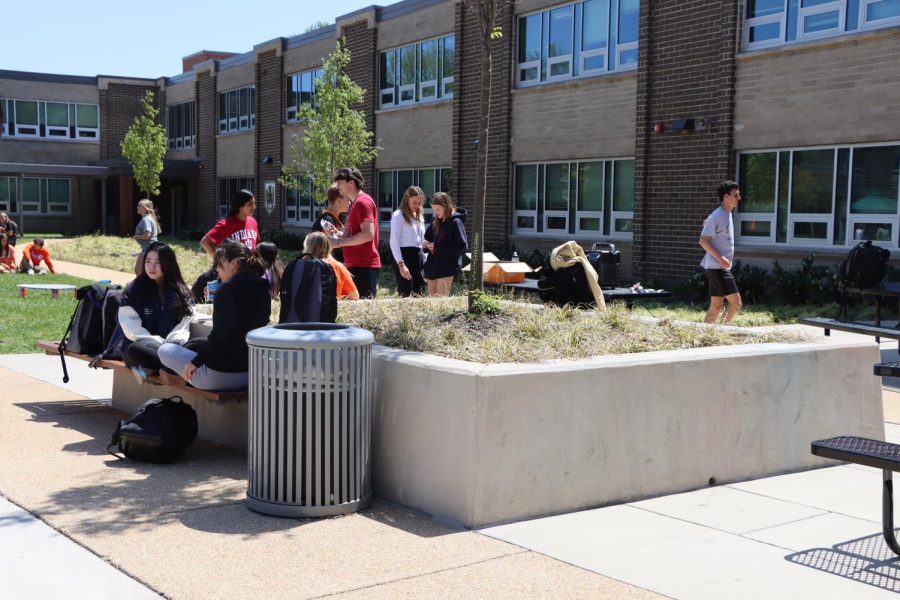Partial Inclusivity
Fasting students fail to receive the “equity” so often preached about
Ice cream sandwiches, popcorn, Capri Sun—while much of the student body eagerly enjoys their well-deserved treats, a portion of students sit idly by. Langley has been handing out treats in the form of food left and right since the return from spring break, but perhaps students and faculty should take a moment to look around. While it may come as a surprise, every class has more than a handful of students fasting as they observe Ramadan, a holy month for Muslims that consists of fasting from sunrise to sunset each day for thirty days.
The most significant misconception is that there is such a small, inconsequential amount of Muslims attending Langley; however, this is not the case. Virginia itself has one of the largest Muslim populations in the country, and in a diverse area such as the suburbs of Washington DC, it should come as no surprise that Islam is the second largest religion in the region, according to the U.S. Religion Census.
For a school that prides itself on inclusivity and equity, Langley has utterly overlooked the fasting portion of its student body this past Ramadan. One of the most prominent examples is the junior treat day that occurred a few weeks ago, the class of 2023’s first treat day since their freshman year. When juniors finally received their much anticipated treat day, it was right in the middle of Ramadan. In contrast, it would have been more inclusive to incorporate a treat day during any other month of the school year, when all members of the junior class could participate.
To make matters even worse, ice cream sandwiches were the provided treat, a highly perishable product, rather than the typical donuts of previous years. Thus, fasting students could not even take home the treats to save for later. Instead, students were left with no choice but to watch their classmates enjoy the first treat day in years.
Furthermore, Langley’s Wellness Week also fell in the middle of Ramadan. The truth is, students are stressed year-round; Wellness Week was not a timely event, and could have been held before or after Ramadan so that all of the student body could be included and enjoy the popcorn provided. Instead, fasting students were once again excluded.
Most recently, those fasting for Ramadan missed the full experience of the student-run “carnival” in the courtyard during lunch, consisting of outdoor games and thoroughly advertised free snacks, such as pretzels and Cheez-Its.
Despite the significant number of Muslims at Langley, they are still undoubtedly a minority group compared to the entire student body. School-life does not have to come to a pause for a month, but the point is: students have seldom been provided food all year, so why did the influx of school-provided “special treats” have to be now, during Ramadan? At the very least, if such treat days had to occur during Ramadan, the parties involved in planning the events could have offered alternative dates for fasting students to receive treats after Ramadan.
There are a plethora of solutions to the issue, if only time and thought was put into the inclusivity and equity of all Langley students, including minority groups. In the Northern Virginia area, many educated individuals know what Ramadan is, and it is clearly marked on all official calendars, but it is a matter of whether that knowledge was actually taken into account when planning school-provided treat days. That begs the question: to what extent does Langley value inclusivity and equity?


